What's a DAO? In this article we'll tell you all there is to know
Decentralized = Digital, global, cannot be censored
Autonomous = Self-governed by smart contracts
Organization = Collaboration with shared objectives
A DAO, or “Decentralized Autonomous Organization,” is a blockchain-native community-led entity without a central authority. Just as the rise of decentralized finance (DeFi), which aims to democratize finance by replacing legacy centralized institutions, DAOs represent a new organizational model that has the potential to fundamentally transform how organizations operate. The term DAO was coined in 2014 by Vitalik Butering. Can the crypto space decentralize and automate how organizations are run?
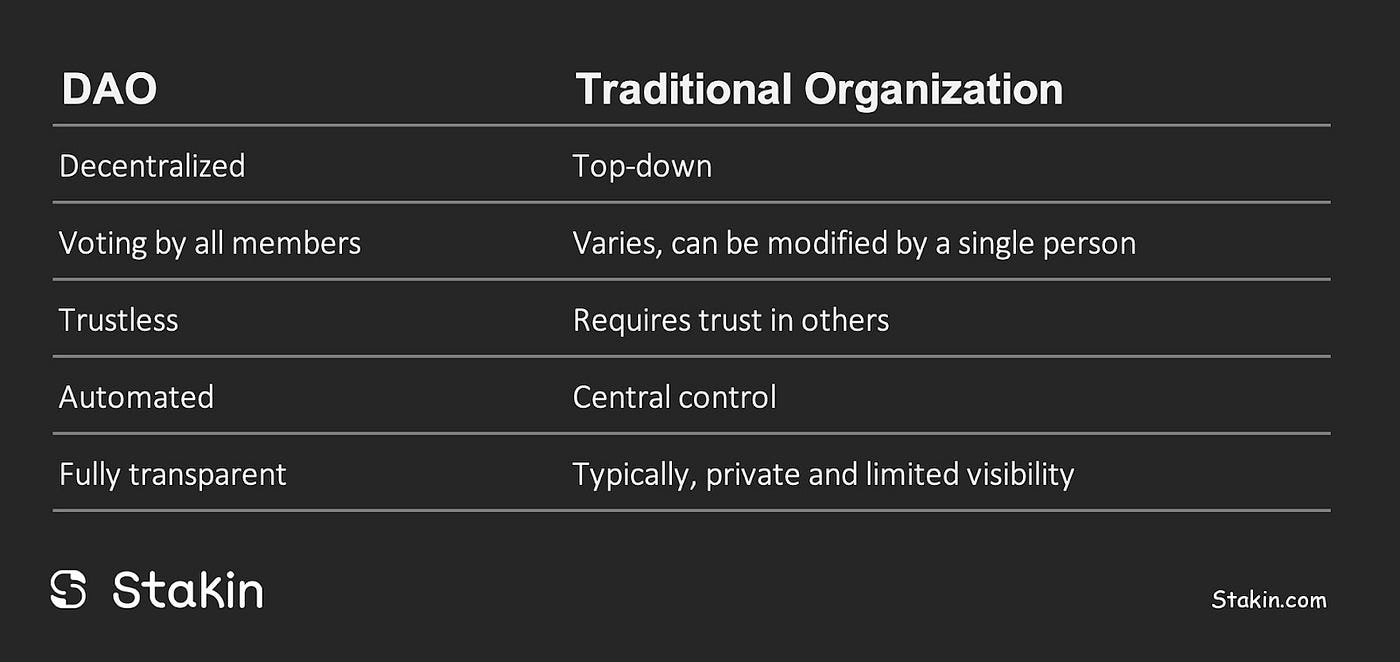
Like DeFi (decentralized finance), a DAO is an entity with no central leadership where critical decisions get made by the community about the project’s future. These decisions are executed via proposals and governed by a community organized around a specific set of rules written into the organization’s code via smart contracts. DAOs work without hierarchical management and can have many purposes. A safe way to work with like-minded individuals from around the world with a decentralized team of ambassadors.
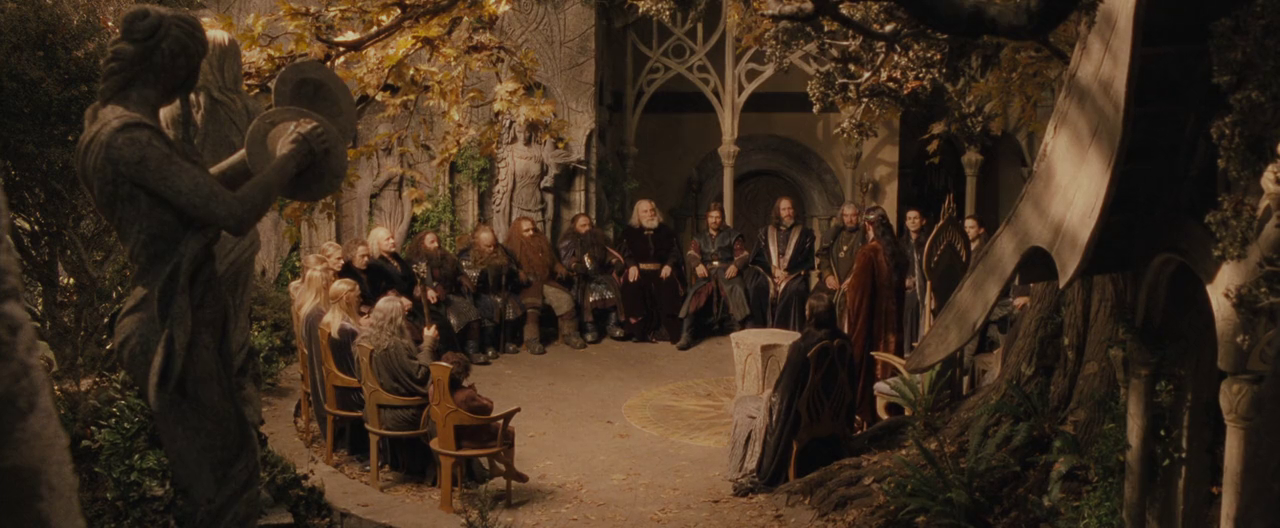
How does a DAO work?
Starting an organization with someone requires trust; this is especially difficult when you’ve only interacted on the internet. The DAO removes the need to trust through the DAOs code, which is transparent and verifiable by anyone. If you’re looking to contribute to the world of Web3, understanding DAOs, how they work, and how to get involved in them will help.
DAOs are established by rules set by a core team of community members through smart contracts. These lay out the foundational framework by which the DAO is to function. With transparency being a primary attribute of DAOs, these rules are highly visible, verifiable, and publicly auditable, so anyone can thoroughly review and understand how it functions. Once the DAO is deployed, the rules can no longer be changed by any means apart from a consensus reached through members voting.
A DAO is a natural governance structure for any crypto-native project; some communities have adopted DAOs to become more decentralized such as Polygon with the Polygon DAO.

“Polygon DAO is the cornerstone of Polygon’s long-term strategy to progress with decentralization” Marco Grendel, Polygon DAO
What Is The Polygon DAO?
Polygon DAO is more than just grants and community initiatives; it represents an Ecosystem DAO, a place where builders, investors, and enthusiasts live on-chain between all the projects built on Polygon. It aspires to be a meeting point where new ideas are forged, and the community launches new projects for the community. The primary mission is the gradual decentralization and the progressive inclusion of the Polygon community in the operations generally administered by the official Polygon team.
Polygon DAO’s goals:
o Represent the Polygon ecosystem
o Progressively decentralize its functions
o Build a neutral party to support the growth of the ecosystem
o Delegate and decentralize the operations of Polygon’s internal team
o Evangelize developers and communities
o Support DAO open-source initiatives
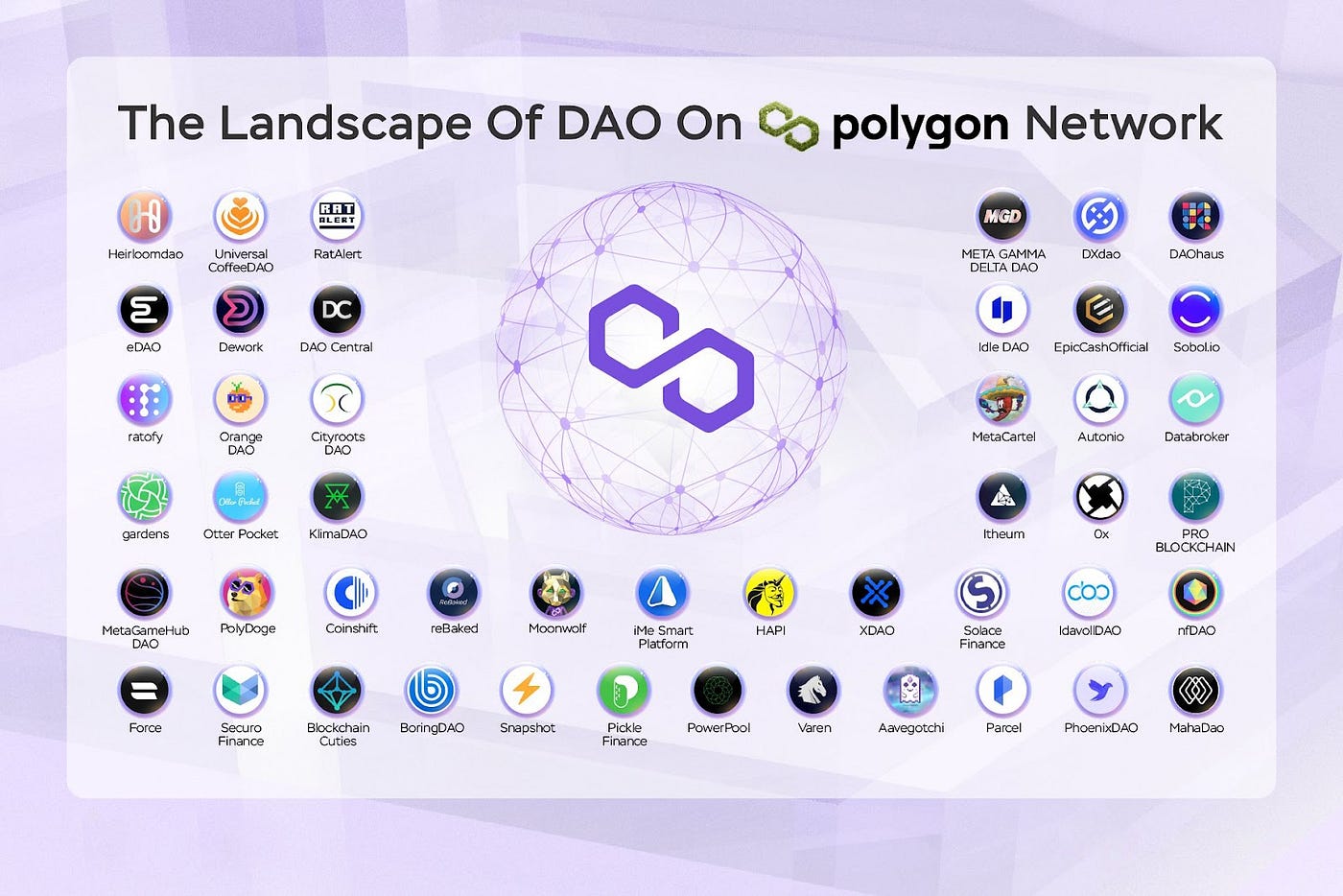
On the path to becoming fully decentralized, the most significant contribution to DAO tooling has been Polygon ID, a sovereign identity solution based on Zero-Knowledge proofs. A permissionless platform that serves as a private Proof of Personhood for DAO governance, potentially for birth certificates, driver licenses, resident permits, and so much more. It enables a transition from a token-based DAO governance to one based on identity and reputation where users can participate in 1 human = 1 vote. A Polygon DAO user’s decision-making identity will soon not only be fully detached from all other areas of their on-chain activity but fully anonymous while engaging in community governance, providing Proof of Personhood.
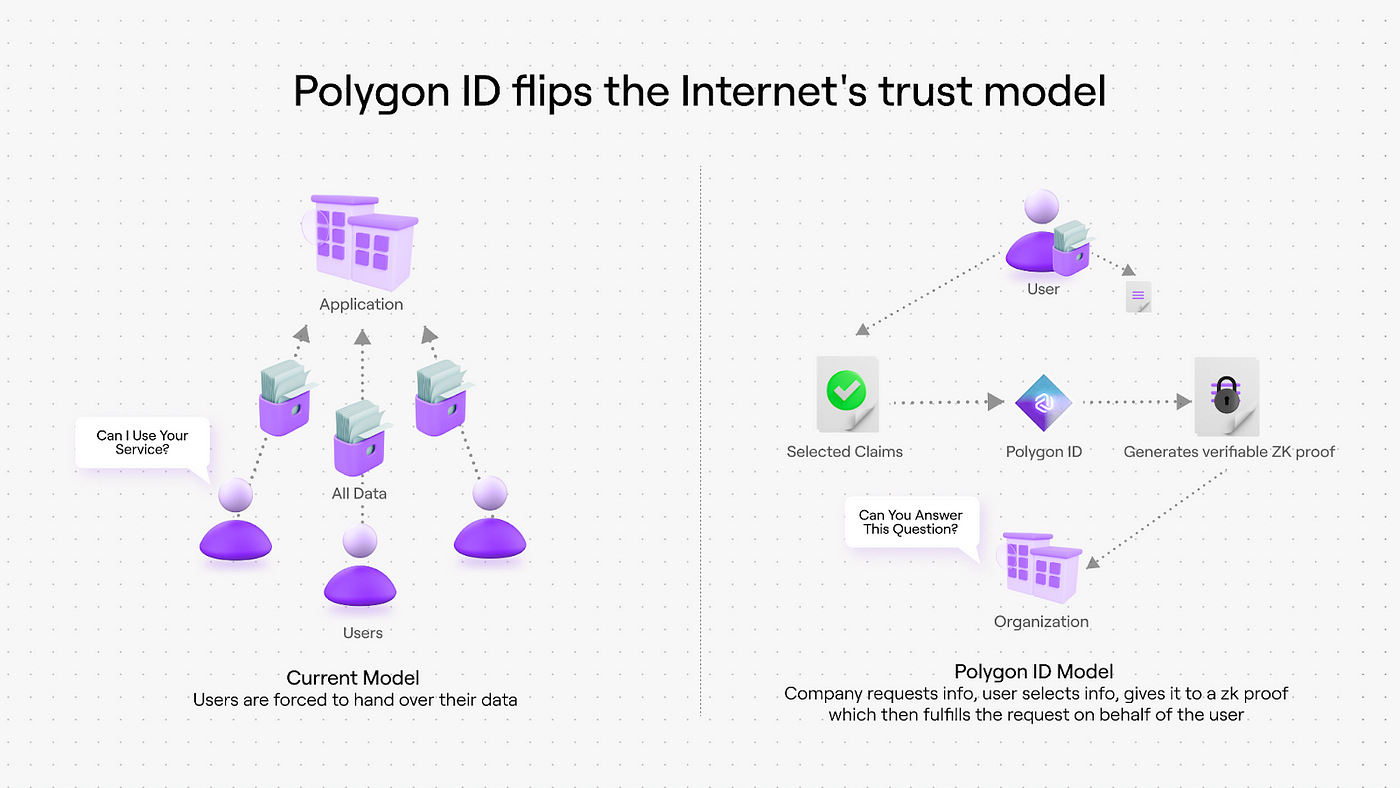
Polygon DAO collaborates with Grail to build a scalable governance communication platform with Polygon ID. You can start using the Polygon ID native App to vote on Grail’s roadmap (web only). Download the native app for iPhone or Android to set up your Polygon ID wallet.
Polygon has collaborated with various DAOs, mainly focused on DeFi and Gaming Guilds, offering several forms of support. The Polygon Village program is now running this, a full-stack ecosystem built to support developers and projects that create, and grow. The support comes in many forms: welcome vouchers, grants, mentoring support offered by various experts, and exposure to relevant communities.
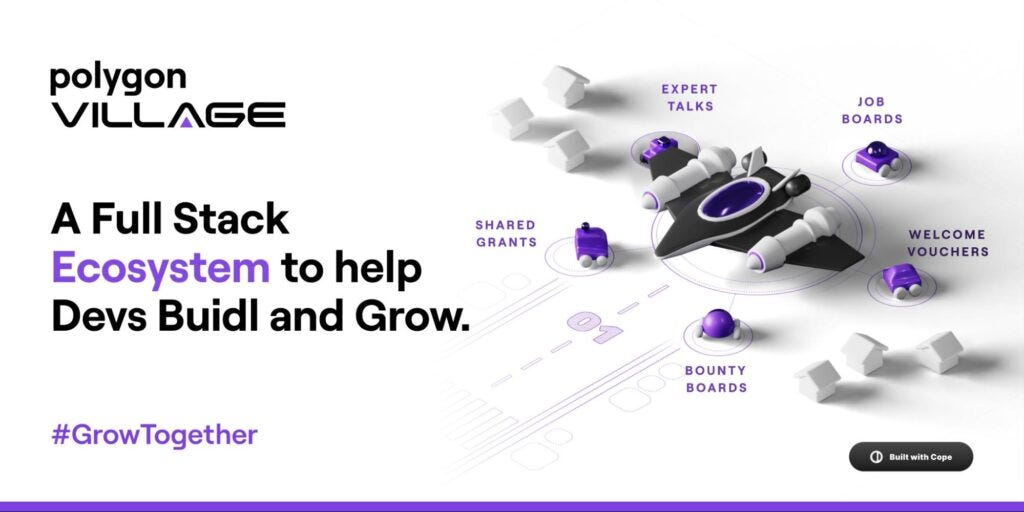
In efforts to help connect dApps in its ecosystem looking for the right talent and those searching for career opportunities in Web3, Polygon Village has introduced WAGMI JobDrops with over 500 verified Web3 jobs from 100+ projects in the Polygon ecosystem.
A decentralized governance initiative recently rolled out is the Polygon DAO Bounty Competition. The competition will reward with a range of financial/non-financial support, with the winner decided by the community. With Polygon ID, the Polygon community can vote for the project they believe is the most deserving, a task usually conducted by the Polygon DAO Grants Team. For more information, visit Stakin’s discord, telegram, blog, and subscribe to our bi-weekly newsletter.
Risks
This inability to react quickly to code bugs does leave a DAO vulnerable to hacker attacks that could exploit security flaws and drain the cryptocurrency’s funds.
The most notable example is, of course, The DAO. It launched in 2016 on the Ethereum blockchain. After raising USD$150 million, The DAO was hacked due to vulnerabilities in its code base. Resulting in the eventual hard fork to restore the stolen funds, but not all parties agreed with this decision, which resulted in a network split: Ethereum and Ethereum Classic.
Another recent example is the Solana DeFi platform, Solend, fearing a large stake about to be liquidated, users mobilized to seize a whale’s wallet. Last month, users voted to prevent a catastrophic on-chain series of liquidation. A single voter made all the difference, the proposal needed a 1% quorum, and this voter filled the requirement. Fortunately, Solend invalidated the vote and adjusted the parameters.
Last year, Juno Network, the Cosmos-based blockchain, launched with the full intention to be community-driven. To that effect, the JUNO token was distributed to ATOM stakers via 1:1 stakedrop with a hard cap of 50k to ensure fair distribution across the network. Everything seemed to work great until a single address appeared with 50 transactions, each receiving 50k JUNO and ending up with a total of 2.5 million JUNO tokens.
The Juno Network was faced with a controversial decision when Prop16 asked the community of JUNO token holders whether the wallet of a community member should be seized (USD$117 million at the time). This is because the wallet allegedly gamed a recent airdrop, with almost all DeFi tokens, comes with voting power. Regardless of your perspective, Prop16 should be a wake-up call. What happened on Juno could happen on a chain or DAO with on-chain governance; it’s up to the community to improve things.
Today, DAOs are still early on the adoption curve — equivalent to 56k dial-up modems on the internet timeline. We are all still fine-tuning and testing possible applications; with it may come failures, but that’s ok; the important thing is that we pick ourselves up and keep trying to improve.
Final Thoughts
In 1997, while hearing the beeping sound from a 56k modem, never in our wildest dreams could we have imagined voting from a smartphone on a governance proposal about the future of a protocol. Yet here we are; what future lies unimagined before us as DAOs break free from all remaining technological and legal hurdles. The space can be dangerous, but this is the frontier where the future is built.
DISCLAIMER: This is not financial advice. Staking, delegation, and cryptocurrencies involve a high degree of risk, and there is always the possibility of loss, including the failure of all staked digital assets. Additionally, delegators are at risk of slashing in case of security or liveness faults on some protocols. We advise you to do your due diligence before choosing a validator.
About Stakin
Stakin is an infrastructure operator for Proof-of-Stake (PoS) public blockchains, offering noncustodial delegation services. The company enables PoS cryptocurrency holders to earn interests on their holdings and participate in decentralized governance while remaining in possession of their cryptocurrencies.
Stakin serves institutional crypto players, foundations, custodians, exchanges as well as a large community of retail token holders. Driven by demand from institutional customers and the community, Stakin provides services for multiple blockchains, including leading ecosystems such as Cosmos, Solana, Polygon, Polkadot, and more.
For more information about Stakin, visit the Website, Twitter, Blog, or join the Telegram and Discord community.



Join the conversation